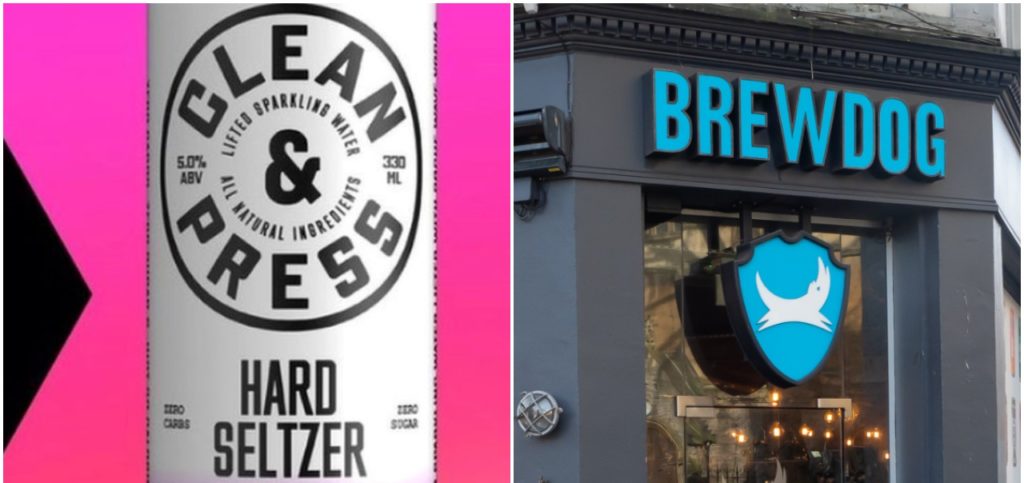An advert by Scottish craft beer firm BrewDog has been banned by the advertising watchdog for making misleading claims.
The “tongue-in-cheek” Instagram post for the Brewdog Clean and Press Hard Seltzer read: “Due to advertising regulations we cannot claim this drink is healthy.”
The Advertising Standards Authority (ASA) received five complaints that the social media post implied that the canned drink was in fact healthy.
BrewDog was involved in more controversy last month when a number of the brewer’s former employees issued an open letter alleging the company fostered a “culture of fear”, leading to founder and chief executive James Watt to promise an independent review.
So, what was the BrewDog advert and why has it been banned?
Here’s what you need to know.
BrewDog ran an advert for its Clean and Press seltzer in January this year.
The post, which showed a Brewdog Clean and Press can against a pink and black background, highlighted the drink’s calorie content and claimed it had “no carbs or sugar and a little bit of alcohol”.
It said: “Even though Clean & Press is only 90 calories per can, with no carbs or sugar and a little bit of alcohol, this is not a health drink.
“If you are looking for a health drink, do not drink Clean & Press."

While the ASA said the post “presented information in a tongue-in-cheek manner” it said that consumers would think BrewDog was trying to say the “product was in fact healthy”, but that they were unable to tell consumers that fact.
"We considered the ad therefore implied that the drink was beneficial to overall good health or health-related well-being,” the watchdog said.
The ASA also challenged the firm over nutrition claims, which are not permitted for alcoholic drinks, and if the phrase “a little bit of alcohol” implied the drink had low alcohol levels, even though it had an alcoholic strength by volume (ABV) of 5%.
It said: "We told BrewDog not to make health claims, or non-permitted nutrition claims about alcoholic drinks. We also told them not to make permitted nutrition claims for alcoholic drinks if the product did not meet the associated conditions of use for the claim."
BrewDog said it had accepted the ruling and removed the wording in question.
The Scottish brewing giant’s recent advertising woes don’t end there, however, as the firm was reported to the ASA last week for claiming a competition prize was a £15,000 solid gold beer can.
Ten people were given the chance to find a gold can hidden in a case of beer, but several winners contested BrewDog’s claim about its worth when they discovered it was actually gold plated.
BrewDog said it stood by the valuation, as the ASA continues to investigate whether the competition broke any of its rules.
James Watt is the co-founder and chief executive of BrewDog.
He founded the craft beer firm alongside Martin Dickie.
The two grew up close to each other, and Dickie was Watt’s flatmate when they both lived in Edinburgh.
While Watt pursued a degree in law and economics at Edinburgh University, Dickie studied distilling at Heriot-Watt University.
Watt graduated from Edinburgh University in 2004. He found a job as a trainee solicitor, but quit after two weeks.
Following Dickie’s graduation, he spent several years working in various distilleries and breweries.
The pair founded their brewing company in 2007, both 24 years old, and by its second year it had become Scotland’s largest independent brewery.
BrewDog started out as a brewery in Fraserburg, and has since evolved into one of the biggest and most recognisable brands in the UK craft beer industry.
The fast-growing firm and pub chain now employs 2,000 staff.